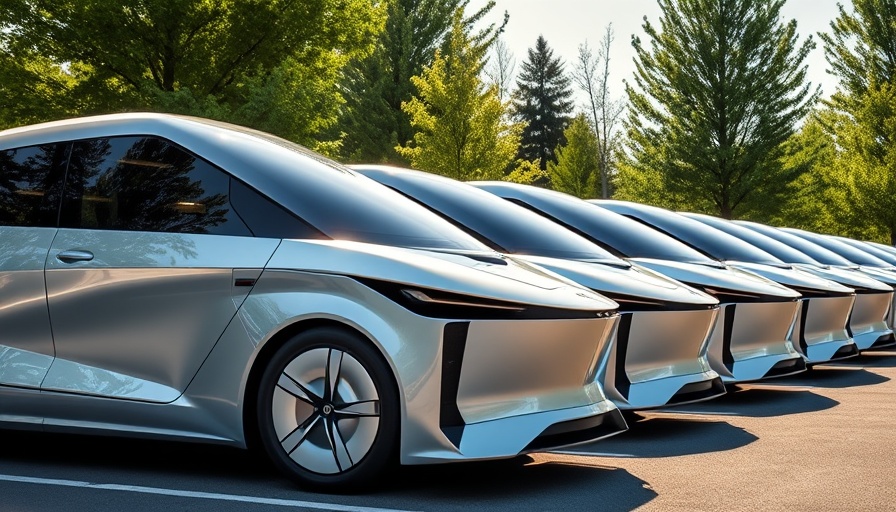
Sales Decline Signals Challenges Ahead for Tesla
Tesla is enduring a tough time, having recorded its second consecutive year of falling sales after it delivered 384,122 vehicles in the second quarter of 2025. This figure reflects a concerning 13.5% decline from the same period in 2022. With rising competition and evolving consumer preferences, the electric vehicle (EV) giant is grappling to maintain the ambitious growth trajectory it once promised.
Comparative Market Trends: Tesla vs. Other Automakers
Tesla's sales slump is not an isolated problem within the EV market. For example, Ford reported a staggering 31% drop in its electric vehicle sales year-over-year in the U.S., while competitors like Hyundai and Kia are also seeing notable contractions in their EV numbers. However, General Motors has recently experienced a positive shift in its U.S. EV sales driven by better model offerings. This discrepancy highlights the increasing competition in the industry, putting pressure on Tesla to innovate and enhance its product line.
The Impact of Strategic Decisions on Sales Performance
CEO Elon Musk has attributed some of the sales difficulties to operational changes, including a halt in production lines to prepare for the upgraded Model Y. While such strategic decisions are often necessary, they also lead to short-term declines in sales, showcasing the delicate balance between immediate and future market performance. With Musk's recent firing of a key sales executive, industry observers are curious to see how leadership changes might revitalize or hinder the company's recovery.
Future Predictions and Market Recovery Strategies
The looming question for Tesla and its investors is whether it can bounce back from this downturn. Analysts suggest the unveiling of new products and enhancements to existing models will be critical. As Tesla launches new features like its long-promised Robotaxi service in Austin, consumer interest may revive. However, this time must be matched with effective marketing and pricing strategies to draw buyers back into showrooms.
Consumer Sentiment: What This Means for Tesla Fans
For many Tesla enthusiasts and owners, this shift raises concerns about the sustainability of their brand loyalty. While Tesla has historically enjoyed a fervent following, potential buyers may reconsider their options as rivals introduce compelling alternatives. Thus, the emotional connection users have with Tesla may be tested as market conditions evolve.
Conclusion: Understanding the Bigger Picture of the EV Market
Tesla's struggles to maintain sales impact not just the company but reflect broader issues within the EV industry. As competition intensifies and consumer expectations shift, remaining attuned to these dynamics is essential for both investors and enthusiasts. Observing upcoming earnings reports and market strategies will be crucial for those invested in the future of electric vehicles.
For continued updates on the ever-evolving tech landscape and potential implications for industries, keep an eye on leading tech news platforms where you can get the latest insights and analysis.
 Add Row
Add Row  Add
Add 



Write A Comment